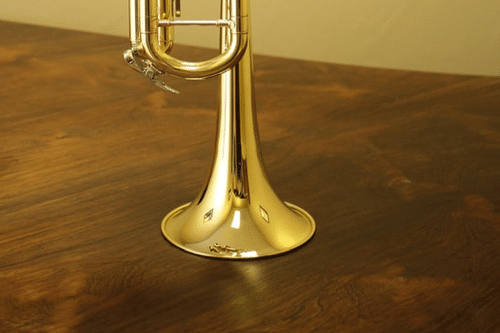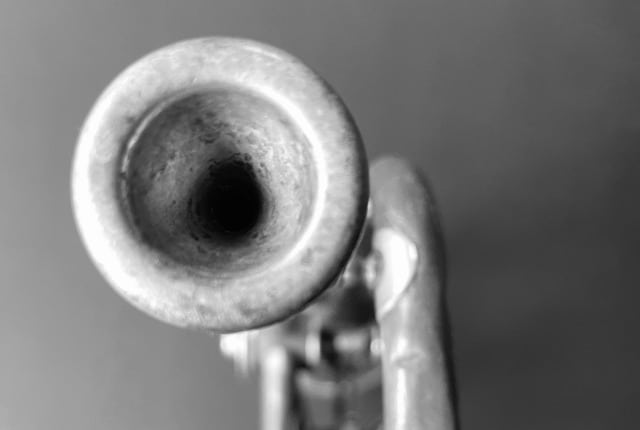Doesn’t matter if you’re new to the scene, or maybe you’ve been playing the trumpet for a very long time, if you intend to have good sound, the right trumpet is an absolute must. Let’s look at how to choose a professional trumpet.
Choosing the Right Trumpet
Whatever instrument you get – either an intermediate trumpet or a professional level trumpet – choosing the right instrument is just as important as choosing the right piece of music to play on that instrument.
Buying a trumpet that is designed to the player’s strengths is important for those seeking to produce a quality, pleasant sound. With the right instrument, players can play to their utmost potential, but choosing from a wide range of options on the market can be quite difficult.
When choosing the right trumpet, there are many factors to consider. And while it’s great to have so many options, this can make the decision difficult for buyers, even those who have experience with a particular type of trumpet.
Before you make the purchase, it is important to understand the key pieces that combine to form a trumpet and produce the unique sound: the bore, the leadpipe, the valves, the bell and the finish.

Bore
One of the most important things to factor in is the trumpet bore. It is truly amazing how small variances in each of these measurements can greatly influence the sound it produces. The bore relates specifically to the diameter of the tubing used to make a trumpet.
Most players use a bore from around .458″ to .460″ (or 11,65 mm to 11,68 mm). The bore size varies greatly between different horns with cornets or piccolo trumpets generally having the smallest while tenor trumpets, tubas, and trombones generally have larger bores. The differences in sounds produces are pretty audible with the smaller the bore size creating a softer sound and larger bores producing louder, bolder sounds.
Looking for a teacher?
Want to get lessons at the comfort of your own home? Check out the course Learn to Play the Trumpet: Beginner to Pro Made the Easy Way* on Udemy! (See their full trumpet course line-up here*!)
Mouthpipe
A Mouthpipe or leadpipe is the pipe or tube into which the mouthpiece is placed. It can be made of yellow brass, red brass or sterling silver. Red brass is often preferred for student trumpets because it is less susceptible to corrosion. Yellow brass requires more frequent cleaning.
The shape of the bell or leadpipe determines how much of the wave is reflected back inside, and consequently affects the strength of the resonance. A smaller bell reflects more energy into the instrument. There is also a reversed leadpipe in which the tuning slide goes over, rather than into the leadpipe. It is a step-up feature, desirable because it decreases resistance.
Bell
This is the part of the trumpet where the sound comes out of. Mostly made of brass and can either be lacquered in gold, which produces a more mellow sound, and silver-plated, which produces a brighter sound. Yellow brass is the most common and is used in horns from student models to professional instruments.
More important than the bell material is how the bells are made. The best bells are one-piece, hand-hammered into shape over a mold by a skilled craftsman. These bells vibrate more uniformly. Student horns usually have two-piece welded bells, as compared to the one-piece bells found on the professional horns. Bells also vary in size and taper, both of which can affect the sound of the instrument in subtle ways.
Valves
The main moving parts of the trumpet are the valves or “valve piston” as the player pushes down on them to make different notes. The quality of the horn is largely dependent on the ease of use and accuracy of the valves. They come in a variety of metals. Nickel-plated pistons are often found in student trumpets because they are hard, durable and tolerant of infrequent cleaning.
A large number of intermediate horns are made with Monel alloy which is softer than nickel. They are sturdy and are quite resistant to corrosion and are comfortable on the fingers. Professional horns, on the other hand, are usually made of either Monel or stainless steel. The critical factor is that the valves play quickly and smoothly.
Finishes
Trumpets usually have a clear lacquer finish on a buffed brass surface. Another kind of finish is silver plate which is considered better than lacquer because it is thin coated compared to lacquer and allows the metal molecules to vibrate and ring more, resulting in a brighter tone. Silver-plating is applied by electroplating. Gold-plating is only available on professional horns and slightly darkens the tone. It also adds a lot of appeal for the trumpet player who’s not wedded to traditional looks.
Storage
Although violins and other stringed instruments are more prone to temperature change and humidity, most brass instruments are much more resilient. Owners of a quality trumpet, however, should still make sure that the trumpets are not subject to extreme temperatures.
Trumpet experts say one of the best ways to protect your instrument from dust, moisture, and other elements is to store in its original case. Besides protecting the trumpet from things that could lead to corrosion, the case also protects the instrument from anything that may shift and fall on it during its time in storage. Trumpets often lose their shape if stored in a case with poor pressure points. For the best results, keep trumpets in a hard case in a room with a regulated temperature.
Budget
Budget is definitely a deciding factor when it comes to choosing the right instrument. Trumpets are really expensive and the professional ones can easily run into five digits. Most step-up trumpets, though, come in the neighborhood of one or two thousand dollars, which is still a big deal.
If you’re on a tight budget, but desperately need a professional trumpet, try looking for a used horn or go to a shop like SamAsh.com* that lets you pay your trumpet off with monthly rates.
There are some good reasons to opt to rent an instrument as well. But you don’t have to worry because all rental instruments come with free servicing and maintenance. The golden rule is to buy the best you can afford.
The Final Word
That being said, go to your local music store and test all the trumpet they have, before making the purchase. You don’t want to rush it, so give yourself as many options as possible. Test as many trumpets as possible.
If you’re in the market for a pro horn, you should learn all you can about different trumpet types and accessories before buying in order to get the best deal. As an instrument that makes distinct sounds from model to model, it is important to find the right one before committing to a purchase. No matter what the need, a little research can go a long way to finding a pro instrument that will last and produce quality sound for years to come.
TrumpetHub.com is a participant of the Amazon Services LLC Associates Program, an affiliate advertising program. Links marked with an asterisk (*) are affiliate links. If you buy a product through an affiliate link, we will get a small commission without extra cost to you. This helps us earn an income off the free content we provide to you. Thank you for your support!
Featured image by Chris Bair on Unsplash.






